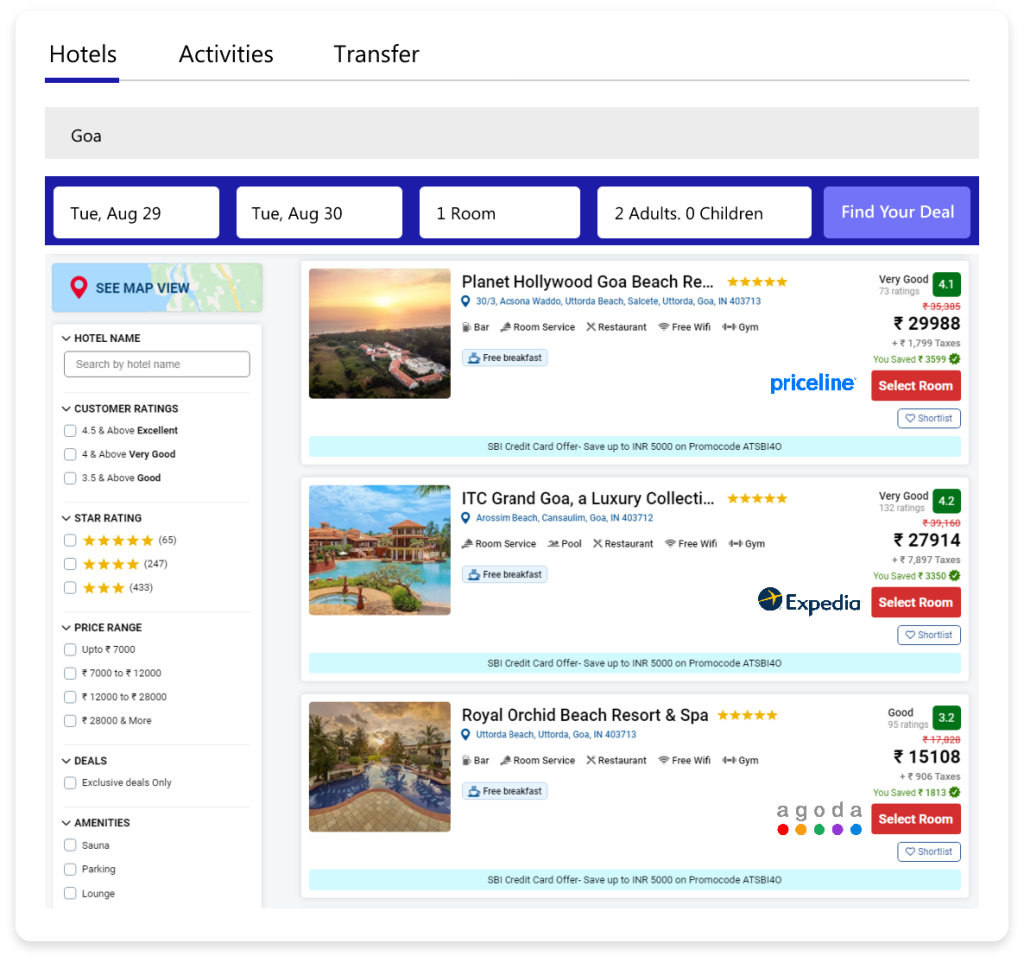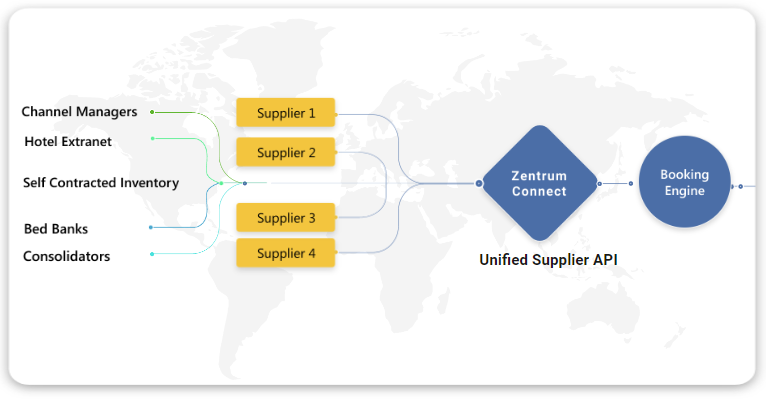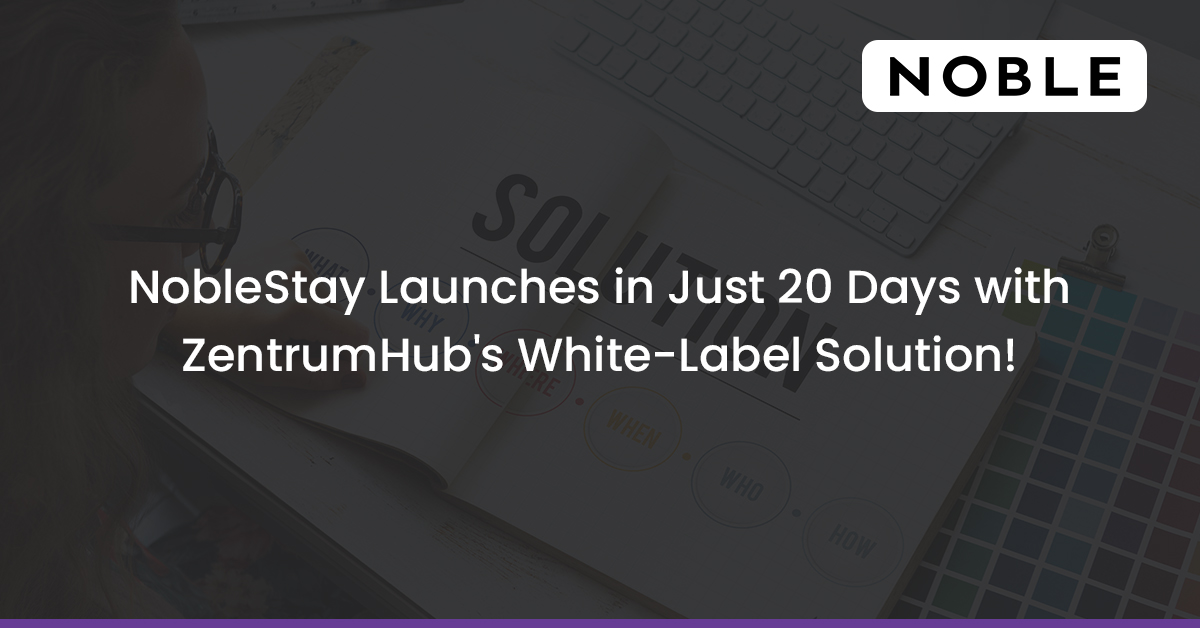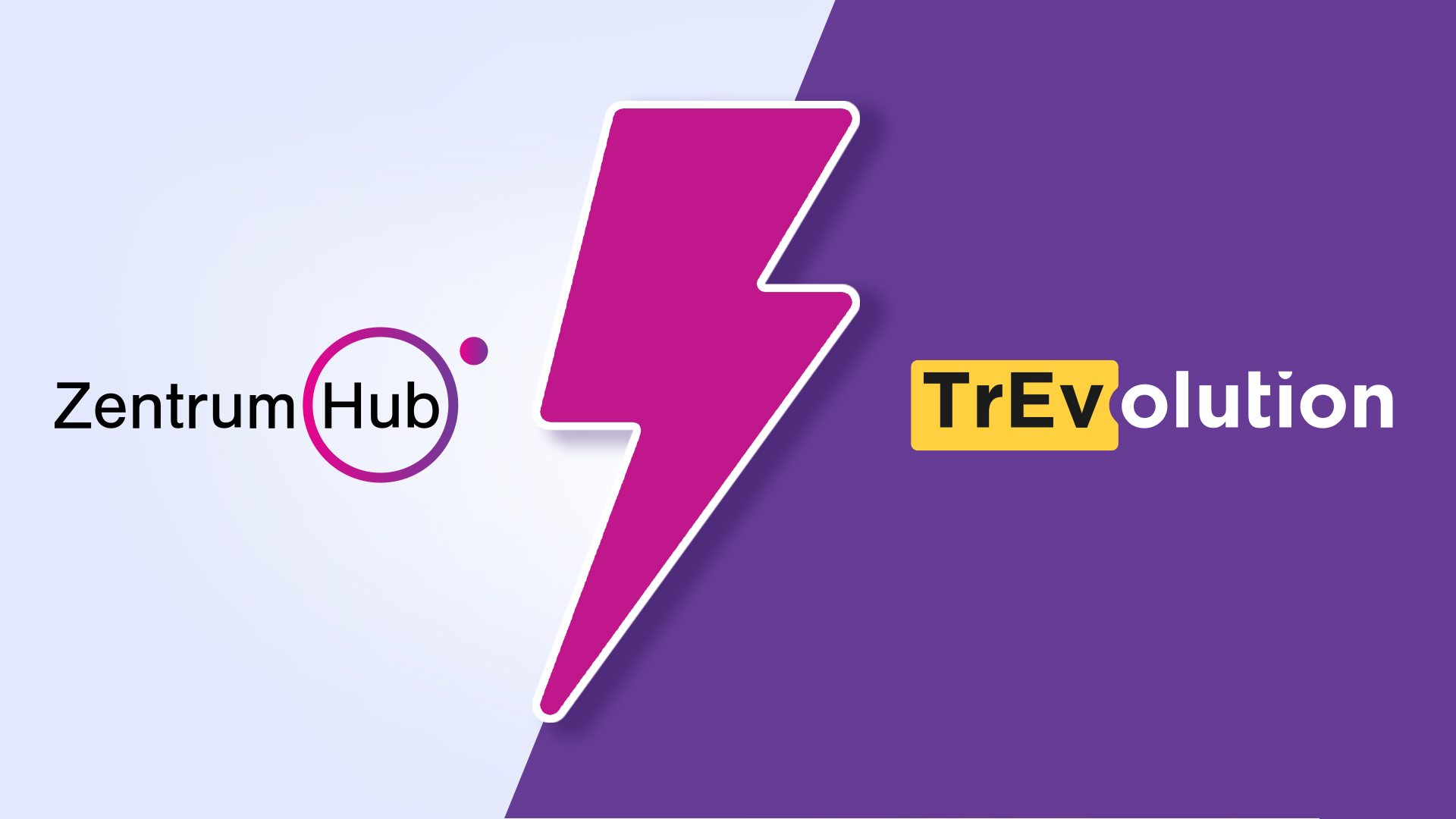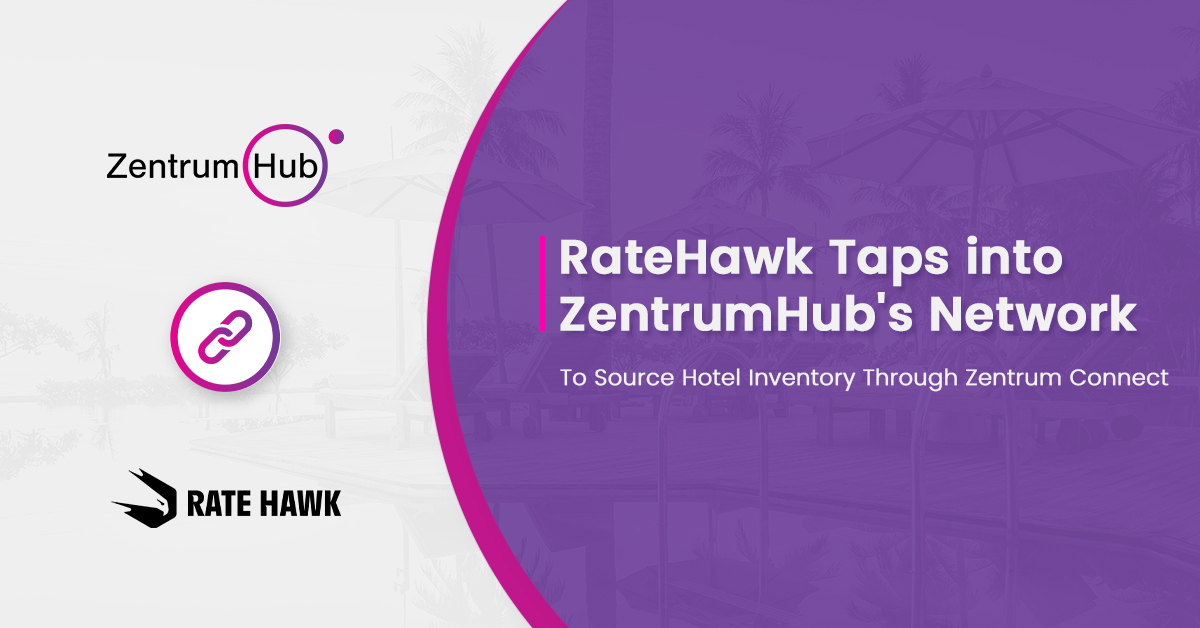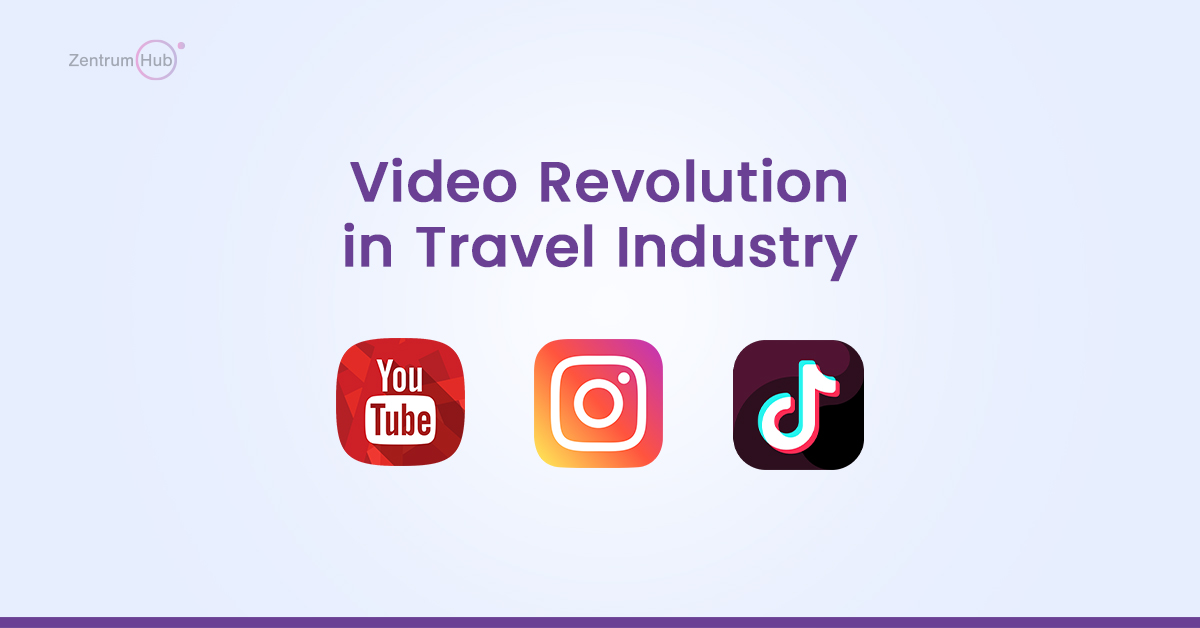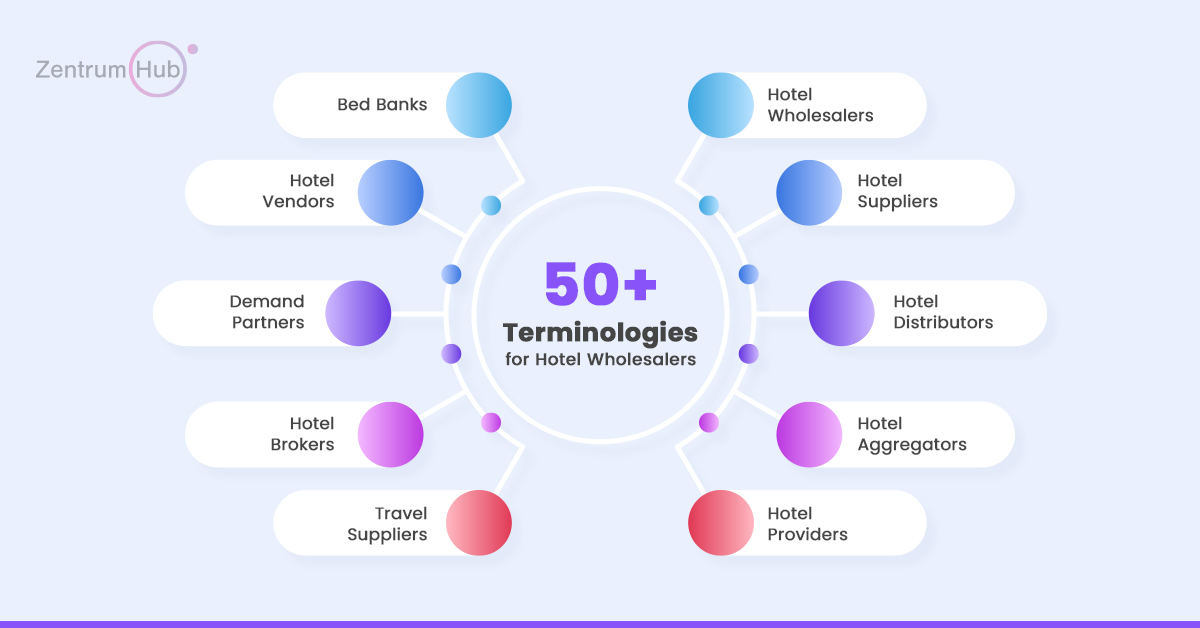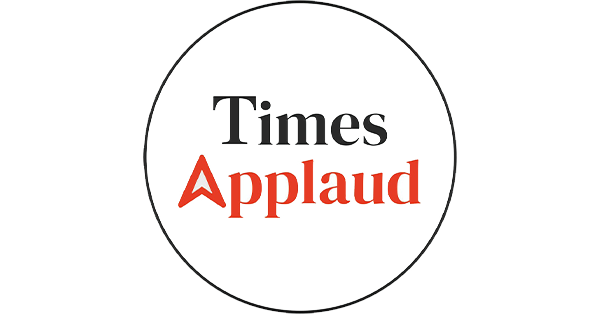- Products
Products by ZentrumHub
-
 Zentrum Booking Engine
Zentrum Booking Engine
-
 Zentrum Connect
Zentrum Connect
Zentrum Booking Engine
Fastest Hotel Booking Platform for B2B & B2C Customers
B2B – Features
- Ready to integrate 80+ hotel suppliers
- Quick agency and agent onboarding, enabling direct bookings
- Set custom markup, discounts, and commissions
- Integrated hotel, room mapping, & currency mapping
B2C – Features
- Establish your B2C brand in the travel industry
- Supplier management, search patterns, multi-currency support
- White Label solution to make personalized interface
- Multiculture & Currency standardization
- Powerful data insights to take business decisions
Zentrum Connect
Global Hotel Supplier Connectivity
- Get connected with 80+ suppliers, GDS, bedbanks and channel managers
- Multi point of sales to access public, CUG, corporate and netRates
- Pre-certified and optimized Supplier integration
- Flexible pricing options, including per-connector and usage-based models
-
- Integrated Suppliers
Get to know Pre-Integrated 75+ Hotel Suppliers with ZentrumHub
- ZentrumHub
- Insights
Insights by ZentrumHub
- Case Studies
- Press & Media
- Blog
- Events
- Webinar
- Awards
- Products
Products by ZentrumHub
-
 Zentrum Booking Engine
Zentrum Booking Engine
-
 Zentrum Connect
Zentrum Connect
Zentrum Booking Engine
Fastest Hotel Booking Platform for B2B & B2C Customers
B2B – Features
- Ready to integrate 80+ hotel suppliers
- Quick agency and agent onboarding, enabling direct bookings
- Set custom markup, discounts, and commissions
- Integrated hotel, room mapping, & currency mapping
B2C – Features
- Establish your B2C brand in the travel industry
- Supplier management, search patterns, multi-currency support
- White Label solution to make personalized interface
- Multiculture & Currency standardization
- Powerful data insights to take business decisions
Zentrum Connect
Global Hotel Supplier Connectivity
- Get connected with 80+ suppliers, GDS, bedbanks and channel managers
- Multi point of sales to access public, CUG, corporate and netRates
- Pre-certified and optimized Supplier integration
- Flexible pricing options, including per-connector and usage-based models
-
- Integrated Suppliers
Get to know Pre-Integrated 75+ Hotel Suppliers with ZentrumHub
- ZentrumHub
- Insights
Insights by ZentrumHub
- Case Studies
- Press & Media
- Blog
- Events
- Webinar
- Awards
50+ Terminologies used for Hotel Wholesaler in Travel Industry
Abhinav Sinha
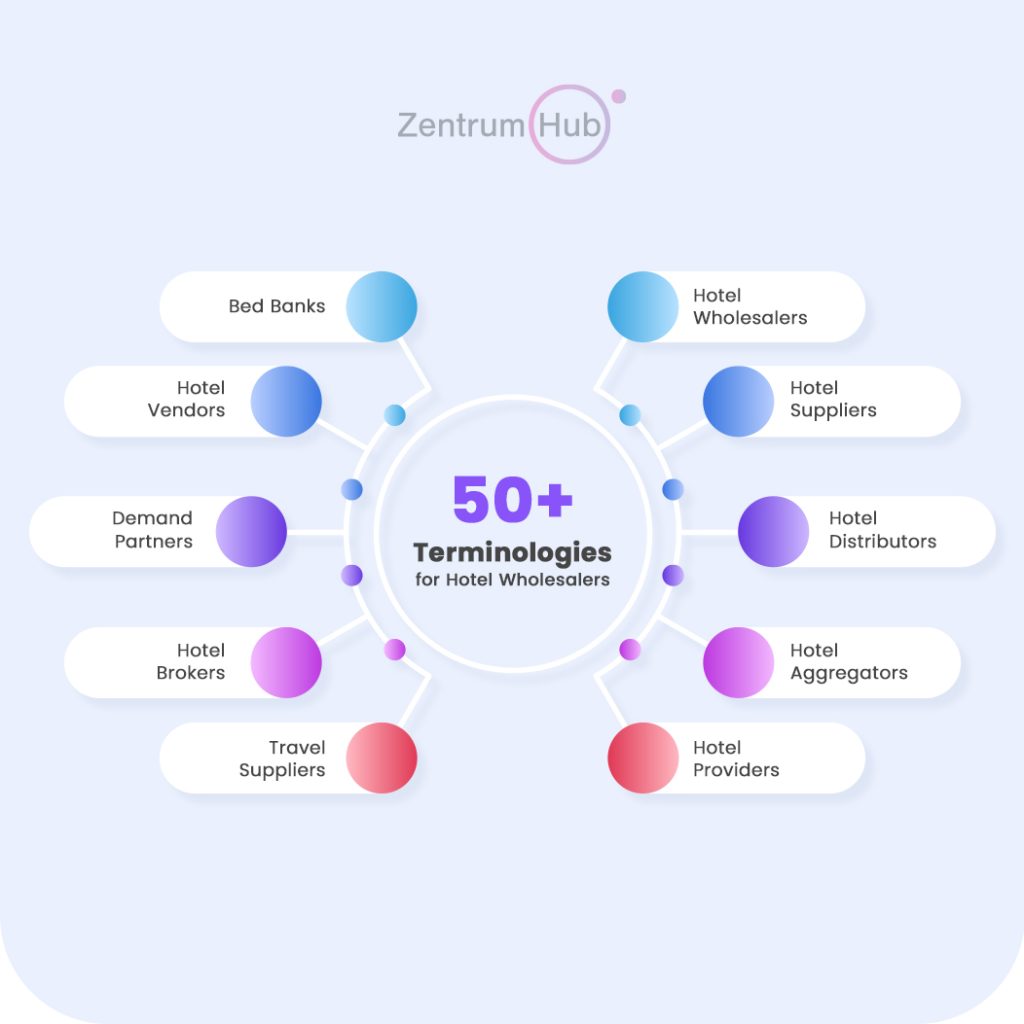
The travel industry’s complex distribution network involves numerous intermediaries, each playing a crucial role in connecting hotels with travelers. Among these intermediaries, hotel wholesalers stand out as pivotal players, yet they’re known by various terms across different regions and contexts. Understanding these terminologies is essential for travel professionals navigating the intricate landscape of hotel distribution.
What is a Hotel Wholesaler?
A hotel wholesaler is a third-party organization that purchases hotel room inventory in bulk from accommodation providers at discounted rates and then redistributes this inventory to travel sellers such as online travel agencies (OTAs), travel agents, tour operators, and destination management companies (DMCs). These intermediaries operate in the B2B segment, meaning they don’t sell directly to end consumers but rather to other distribution channels.
The primary function of hotel wholesalers is to bridge the gap between hotels seeking broader market reach and travel sellers requiring diverse accommodation options for their customers. By negotiating bulk rates and managing complex distribution networks, wholesalers enable hotels to access markets they might otherwise struggle to reach independently.
Complete List: 50+ Different Terminologies for Hotel Suppliers Worldwide
Primary Wholesale Terms:
- Hotel Wholesalers – Traditional bulk purchasers of hotel inventory
- Hotel Suppliers – North American term for inventory providers
- Hotel Distributors – European terminology emphasizing distribution channels
- Hotel Aggregators – APAC region term for inventory consolidators
- Bed Banks – Specialized accommodation-only wholesalers
- Hotel Vendors – Business-to-business inventory sellers
- Demand Partners – US terminology focusing on demand generation
- Hotel Providers – General term for accommodation suppliers
- Hotel Brokers – Intermediaries acting as middlemen
- Tvravel Suppliers – Broader category including hotels and other travel services
North America: Hotel Suppliers and Demand Partners
Specialized Terminology:
- Accommodation Wholesalers – Focus on all types of lodging
- Room Banks – Alternative term for bed banks
- Hotel Consolidators – Companies that consolidate multiple hotel sources
- Inventory Aggregators – Technology-focused consolidation platforms
- Channel Partners – Distribution channel focused terminology
- Supply Partners – Supplier relationship emphasis
- Hotel Network Providers – Multi-hotel portfolio managers
- Accommodation Aggregators – Broader lodging category consolidators
- Hotel Portfolio Managers – Companies managing multiple hotel relationships
- Travel Inventory Providers – Multi-product travel suppliers
Technology-Driven Terms:
- Hotel API Providers – Technology platform suppliers
- Travel Tech Platforms – Comprehensive technology solutions
- Connectivity Providers – API integration specialists
- Hotel XML Suppliers – Data format specific providers
- Channel Managers – Inventory distribution technology
- Integration Partners – Technology integration specialists
- Platform Providers – Comprehensive platform solutions
- Travel Aggregation Platforms – Multi-supplier consolidation technology
- Hotel Booking Engines – Direct booking technology providers
- Unified API Providers – Single-point integration solutions
Regional and Market-Specific Terms:
- Inbound Tour Operators – Regional incoming travel specialists
- Ground Handlers – Local destination service providers
- Receptive Operators – Destination-based service providers
- Local Suppliers – Regional accommodation providers
- Domestic Wholesalers – Country-specific operators
- International Distributors – Cross-border distribution specialists
- Regional Aggregators – Geographic-specific consolidators
- Market Specialists – Niche market focused suppliers
- Destination Specialists – Location-expert providers
- Cultural Tourism Suppliers – Specialized experience providers
Business Model Classifications:
- Net Rate Providers – Wholesale pricing model suppliers
- Merchant Rate Suppliers – Retail pricing model providers
- Commission-Based Suppliers – Agency model operators
- Mark-up Model Providers – Traditional wholesale model
- Dynamic Pricing Suppliers – Real-time pricing adjustment providers
- Fixed Rate Contractors – Long-term rate agreement providers
- Flexible Rate Suppliers – Variable pricing model providers
- Volume Discount Providers – Bulk purchase incentive suppliers
- Tier-Based Suppliers – Volume-dependent pricing providers
- Subscription Model Providers – Membership-based access suppliers
Also Read What is a Hotel Channel Manager and How Does it Work?
In North America, particularly the United States and Canada, hotel wholesalers are commonly referred to as “hotel suppliers“. This terminology emphasizes their role as providers of hotel inventory to the broader travel distribution network. Hotel suppliers in this region focus on sourcing and acquiring hotel products in bulk, then selling them to hotel buyers such as OTAs, tour operators, and DMCs.
Another popular term in the USA is “demand partners”. This designation highlights their function as entities that generate demand for hotel inventory by working closely with accommodation providers. Demand partners operate similarly to traditional wholesalers but emphasize their role in driving bookings and revenue for hotel partners.
The term “hotel providers“ is also frequently used in the B2B marketplace across North America, particularly when describing companies that offer comprehensive hotel booking solutions to travel agencies and corporate clients.
Europe: Hotel Distributors and Vendors
European markets typically use the term “hotel distributors” to describe wholesalers. This terminology reflects their primary function of distributing hotel inventory across various channels and geographic markets. Hotel distributors in Europe often negotiate special discounted rates with accommodation providers and sell them to OTAs, DMCs, and tour operators throughout the continent.
“Hotel vendors” is another universal term used across European markets. Hotel vendors are distinguished from hotel amenities vendors, as they specifically deal with selling hotel products to travel buyers rather than providing hotel supplies or services.
Asia-Pacific: Hotel Aggregators
Specialized Terminology by Business Model
In the Asia-Pacific (APAC) region, wholesalers are commonly called “hotel aggregators”. This terminology became particularly popular in the mid-2000s as the region’s travel industry evolved rapidly. While their business model shares similarities with traditional wholesalers, hotel aggregators often have a slightly different operational approach.
Hotel aggregators in APAC frequently operate as intermediaries that lease hotel rooms and take responsibility for marketing and operational functions. This model allows them to offer more integrated services and maintain closer relationships with both hotels and travel sellers.
Bed Banks
One of the most specific types of hotel wholesalers is known as “bed banks”. This term describes specialized B2B platforms that focus exclusively on accommodation wholesaling. Bed banks purchase large room allotments from hotels at discounted bulk rates and resell them to various travel distributors.
Key characteristics of bed banks include:
- Wide inventory scope: Offering diverse accommodation types from hotels to apartments and villas
- Real-time availability: Providing instant access to room inventory and pricing
- Competitive rates: Negotiating significant discounts due to bulk purchasing power
- Integration capabilities: Offering seamless API connections with travel seller platforms
Major bed banks in the industry include Hotelbeds, WebBeds, GRNConnect, and Bonotel, among others. These companies have become essential components of the global hotel distribution ecosystem.
Hotel Brokers
The term “hotel brokers” is often used interchangeably with wholesalers, particularly when referring to entities that act as intermediaries between hotels and customers. Hotel brokers typically purchase rooms in bulk at discounted rates and package them with other travel services before selling to travel agencies or directly to consumers.
Tour Operators as Wholesalers
Tour operators represent another category that often functions as hotel wholesalers. These companies buy travel products in bulk, bundle them to create comprehensive travel packages, and distribute them through retailers or sometimes directly to travelers. Tour operators frequently contract hotel rooms as part of their package offerings, effectively functioning as specialized wholesalers.
Destination Management Companies (DMCs)
Destination Management Companies deserve special mention in the wholesaler ecosystem. While not traditional wholesalers, DMCs often source hotel inventory in bulk and act as intermediaries between local accommodation providers and international tour operators or travel agencies.
DMCs provide several key services:
- Local expertise: Deep knowledge of specific destinations and regional suppliers
- Comprehensive services: Bundling accommodation with transportation, activities, and local experiences
- B2B and B2C operations: Some work exclusively with travel professionals, while others serve end consumers
- Cultural and language support: Offering multilingual services and cultural insights
Technology Platform Providers
Modern hotel distribution has given rise to “hotel API providers“ and “travel technology platforms” that function as sophisticated wholesalers. These companies like ZentrumHub, Expedia Partner Solutions, and others provide unified access to multiple hotel suppliers through single API integrations.
These technology-driven wholesalers offer:
- Unified connectivity: Access to numerous suppliers through one integration
- Real-time data processing: Instant availability and pricing updates
- Scalable solutions: Platforms that grow with client needs
- Advanced analytics: Data insights for informed decision-making
Understanding the Distribution Chain
The complexity of hotel distribution means that multiple terminologies often apply to the same entity, depending on their role in a specific transaction. A single company might function as:
- A wholesaler when purchasing inventory from hotels
- A supplier when providing inventory to OTAs
- A distributor when managing multiple sales channels
- An aggregator when consolidating inventory from various sources
Regional Business Model Variations
Traditional Wholesale Model
The classic model involves purchasing hotel rooms at net rates and reselling them with markup to travel agents and tour operators. This model is still prevalent in many established markets.
Agency Model
Some wholesalers operate on an agency basis, earning commissions rather than marking up rates. This model is becoming increasingly popular as it offers more transparency in pricing.
Merchant Model
In the merchant model, wholesalers purchase inventory at net rates and have the flexibility to set their own selling prices, similar to how OTAs operate.
Dynamic Packaging Model
Modern wholesalers often offer dynamic packaging capabilities, allowing travel sellers to combine hotel inventory with flights, transfers, and activities in real-time.
Industry Impact and Future Trends
The terminology surrounding hotel wholesalers continues to evolve as the industry adapts to new technologies and changing consumer behaviors. Several trends are shaping the future of wholesale terminology:
Technology Integration: Terms like “API providers” and “connectivity platforms” are becoming more common as technology plays an increasingly central role in distribution.
Specialization: More specific terms are emerging to describe niche wholesalers focusing on particular market segments, such as “luxury bed banks” or “budget accommodation aggregators.”
Sustainability Focus: New terminology is developing around “sustainable travel suppliers” and “eco-conscious wholesalers” as environmental concerns become more prominent.
Direct Connectivity: The rise of “direct connect providers” and “channel-free distribution” reflects the industry’s movement toward more streamlined distribution models.
Conclusion
Understanding the diverse terminology used for hotel wholesalers across different regions and contexts is crucial for travel industry professionals. While the core function remains consistent – acting as intermediaries between hotels and travel sellers – the specific terms used can vary significantly based on geographic location, business model, and target market.
Whether referred to as hotel suppliers, demand partners, distributors, aggregators, bed banks, or any other terminology, these entities play an essential role in the global travel ecosystem. They enable hotels to reach broader markets while providing travel sellers with access to diverse accommodation options at competitive rates.
Recommended Blogs
- What is a Hotel Wholesaler?
- Complete List: 50+ Different Terminologies for Hotel Suppliers Worldwide
- North America: Hotel Suppliers and Demand Partners
- Europe: Hotel Distributors and Vendors
- Asia-Pacific: Hotel Aggregators
- Specialized Terminology by Business Model
- Regional Business Model Variations
- Conclusion
- Recommended Blogs

